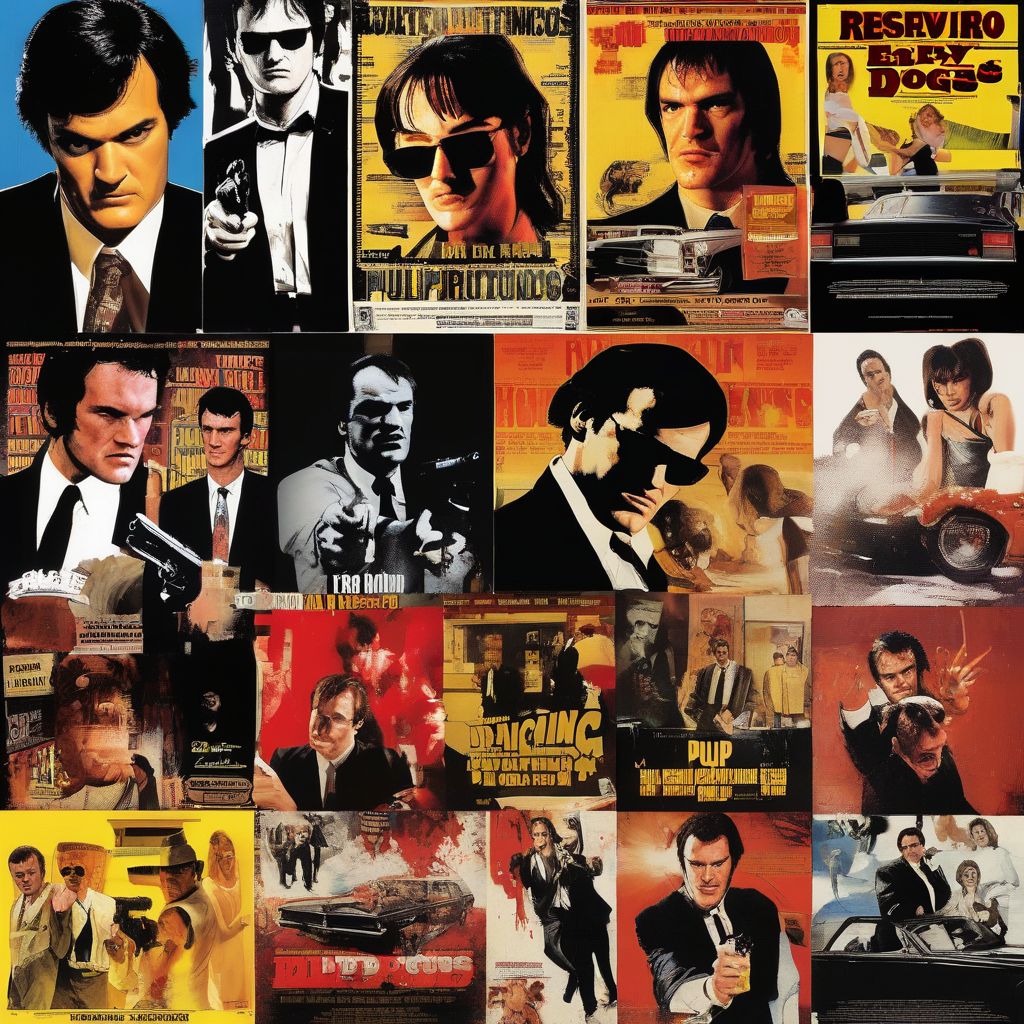Have you ever watched a film and felt completely captivated by its unique style and vision? Perhaps you found yourself drawn to the director’s distinctive use of cinematography, their ability to draw out nuanced performances, or their knack for tackling complex themes. It’s like discovering a favorite author; you can’t wait to delve into more of their work. Tracing the evolution of a film director’s career is like embarking on a captivating journey, uncovering the influences, risks, and artistic growth that shaped their cinematic voice.
Unmasking the Auteur: Early Works and Influences
Every director starts somewhere. Often, their early works are like rough drafts, brimming with raw talent and hints of the distinctive style they’ll later hone. Take Quentin Tarantino, for instance. His debut, “Reservoir Dogs,” bursts onto the scene with his trademark non-linear storytelling and witty dialogue, elements he’d refine in later masterpieces like “Pulp Fiction” and “Inglourious Basterds.”
Examining a director’s early work often reveals their cinematic influences. Did they cut their teeth on gritty independent films, draw inspiration from classic Hollywood romances, or find their voice through experimental art-house cinema? Identifying these influences provides a foundation for understanding their artistic choices.
 Quentin Tarantino's Early Films
Quentin Tarantino's Early Films
Thematic Threads and Artistic Explorations
As directors gain experience, they often gravitate towards recurring themes or genres. Think of Tim Burton’s fascination with the macabre and the fantastical, evident in films like “Edward Scissorhands” and “Corpse Bride.” These recurring elements offer insight into a director’s worldview and artistic sensibilities.
Directors also evolve by venturing outside their comfort zones. They might experiment with new genres, explore different storytelling techniques, or collaborate with new actors and crew members. These artistic explorations can lead to both critical acclaim and commercial success. Consider Ang Lee, known for his versatility in tackling diverse genres, from the intimate drama of “Brokeback Mountain” to the visually stunning “Life of Pi.”
Critical Reception and Industry Recognition
A director’s career is also shaped by how their work is received. Critical acclaim, prestigious awards, and box office success all contribute to their reputation and influence within the film industry. Pay attention to reviews, interviews, and industry awards to gauge how a director’s work is perceived over time.
Keep in mind that critical reception can be subjective and evolve over the years. A film that was initially panned might gain cult status later, while a box office smash might not stand the test of time.
 Movie Awards Ceremony
Movie Awards Ceremony
Beyond the Big Screen: Interviews, Documentaries, and Biographies
To gain a deeper understanding of a director’s evolution, look beyond their films to interviews, documentaries, and biographies. These resources offer valuable insights into their creative processes, influences, and challenges they faced throughout their careers.
Director’s commentaries on DVD and Blu-ray releases are also treasure troves of information. They provide a glimpse into the filmmaker’s thought process as they discuss their artistic choices, anecdotes from the set, and the overall vision behind the film.
A Journey of Discovery: Embracing the Evolving Auteur
Tracing the evolution of a director’s career is an enriching experience. It allows us to appreciate their artistic growth, understand their cinematic language, and connect with their work on a deeper level. So, the next time you find yourself captivated by a film, take some time to explore the director’s filmography. You might be surprised by the fascinating journey you uncover.
[amazon bestseller=”film-director-biographies”]
Key Takeaways for Aspiring Cinephiles:
- Start at the Beginning: Explore a director’s early work to identify their initial style and potential influences.
- Look for Thematic Threads: Identify recurring themes or genres that provide insights into the director’s artistic sensibilities.
- Embrace Artistic Explorations: Observe how a director experiments with different genres, techniques, and collaborators throughout their career.
- Consider Critical Reception: Analyze reviews, awards, and box office performance to understand how a director’s work has been received.
- Go Beyond the Films: Delve into interviews, documentaries, and biographies to gain a deeper understanding of their creative process and influences.
Remember, tracing the evolution of a director’s career is an ongoing process of discovery. Embrace the journey and allow yourself to be surprised by the evolution of these cinematic storytellers.
